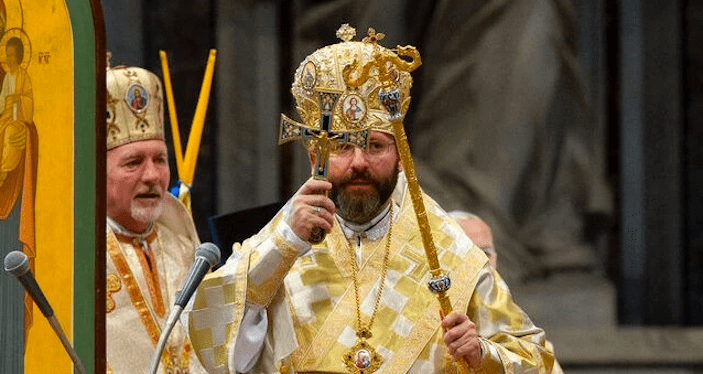ROME – Major Archbishop Sviatoslav Shevchuk, head of the Ukrainian Greek Catholic Church, has opposed a draft bill banning the activities of the Moscow Patriarchate in Ukraine, saying the measure is not only problematic in terms of religious freedom but would turn Russia’s supporters into martyrs.
Speaking to the Ukrainian Pravda news agency, Shevchuk was asked about a draft bill submitted to the Ukrainian parliament banning the Ukrainian Orthodox Church of the Moscow Patriarchate, saying, “I question it. I do not want to give prescriptions for our legislators.”
This, Shevchuk said, is because the Ukrainian Greek Catholic Church was once formally banned itself under Soviet communist rule.
“We survived underground. Moreover, the very fact that we were a martyred church that did not become a collaborating church with the Soviet authorities saved our moral authority,” he said, insisting that just because a church is banned “does not mean the end of its existence.”
A church, he said, “is not only a religious structure, not some organization that has a charter, a leader, a religious center. The Church is people who also have constitutional rights. As long as there will be people who are oriented towards Moscow Orthodoxy in Ukraine, that church will exist – even when, according to state law, it would be illegal.”
He argued that banning the church at an official level would “give this church the palm of martyrdom,” and will allow Moscow loyalists “to really go into silent opposition and become those who will then claim authenticity.”
Shevchuk said he recently told one Ukrainian legislator that, “If you want to perpetuate the Moscow Patriarchate in Ukraine, ban it.”
On the other hand, Shevchuk also said each state has the right and the responsibility to ensure its own national security and that if there are “traitors,” regardless of their religion, who pose a real threat in times of martial law, “they must be identified and, observing all laws, take the next steps.”
“You should not be persecuted for belonging to some church structure, no. But for crimes against our country, here we are all equal,” he said.
He suggested asking the question of banning the Moscow Patriarchate “in a different way” that makes it clear the measure “is not really about restricting someone’s religious freedom.”
The point, he said, “is that our northern neighbor, who is killing us today, cannot use any of the churches for his geo-political purposes.”
In March of last year, a draft bill was submitted to the deputies of the Verkhovna Rada, Ukraine’s unicameral parliament, banning the Moscow Patriarchate, including the Ukrainian Orthodox Church of the Moscow Patriarchate (UOC-MP) – a branch of Orthodoxy in Ukraine that reports to Moscow – from the territory of Ukraine.
The draft bill stipulates that all property belonging to the Russian Orthodox Church and its authorities, including affiliated religious organizations, synod institutions, and diocesan administration, be inventoried and nationalized within 48 hours of the bill’s ratification.
All religious communities, monasteries, and theological schools belonging to the Moscow Patriarchate are allowed 14 days from when the law enters info force to change their subordination.

